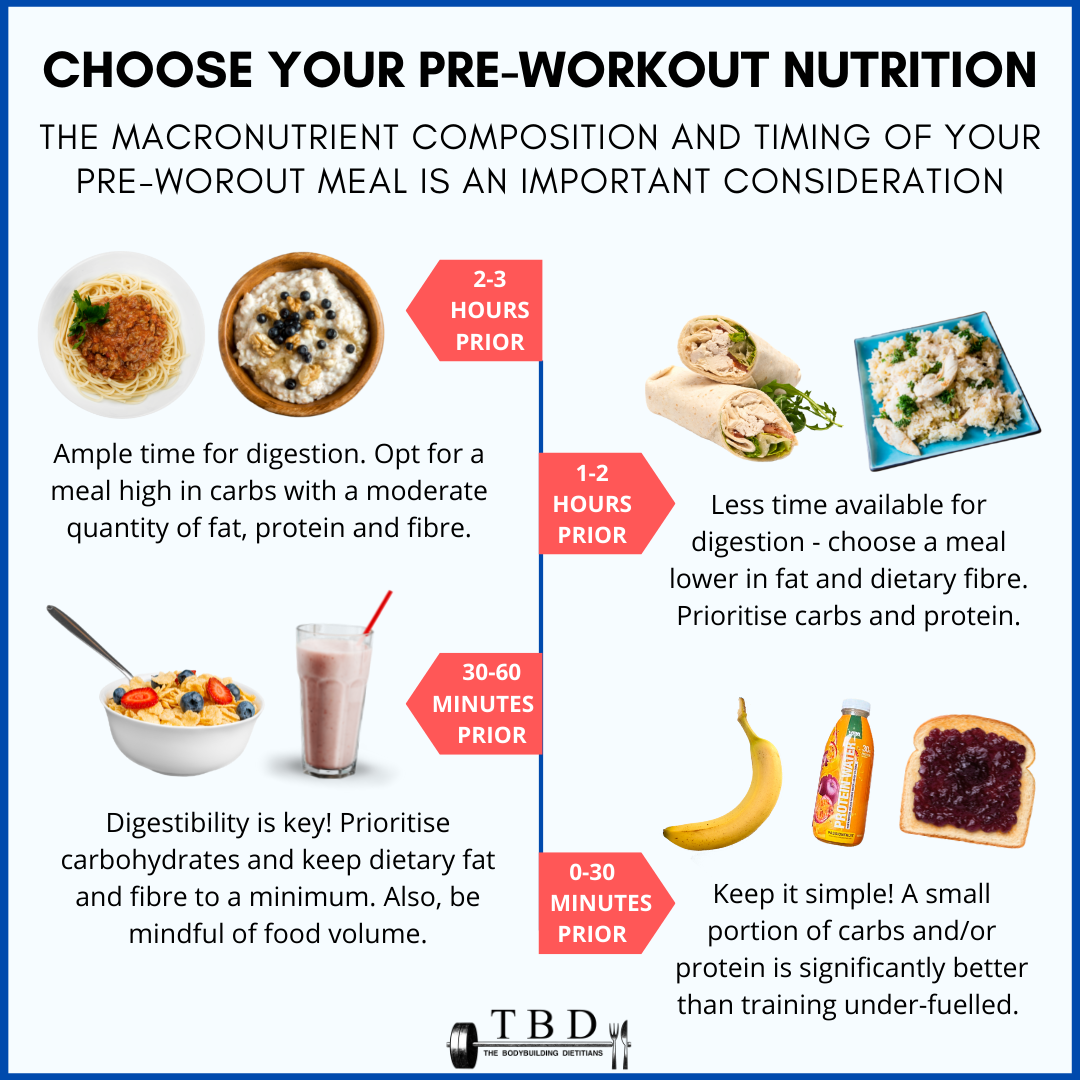Are you confused about whether you should workout before or after eating? You’re not alone.
Many people wonder how timing their meals around exercise affects their energy, performance, and results. The truth is, what you choose can make a big difference in how you feel during your workout and how your body recovers afterward. Keep reading to discover what works best for you and how to make your workouts more effective—no matter when you decide to eat.
Timing Workouts And Meals
Timing workouts and meals can impact your energy and results. Knowing when to eat around exercise helps your body perform better. Some people exercise on an empty stomach. Others prefer to eat first. Both ways have benefits and challenges.
Choosing the right timing depends on your goals and how your body feels. Let’s explore the benefits of exercising before eating and the advantages of working out after meals. Understanding how meal timing affects performance helps you make better choices.
Benefits Of Exercising Before Eating
Exercising before eating can boost fat burning. Your body uses stored fat for energy when no food is in your stomach. Some find this helps with weight loss. It may also improve insulin sensitivity. Morning workouts on an empty stomach can increase focus and discipline.
Some people feel lighter and more energetic without food in their stomach. It can reduce stomach discomfort during exercise. However, it is important to listen to your body and stop if you feel weak or dizzy.
Advantages Of Working Out After Meals
Eating before exercise gives your body fuel to perform better. Carbohydrates from food provide quick energy. This helps especially during long or intense workouts. You may have more strength and endurance after eating. It also helps prevent low blood sugar and fatigue.
Meals before workouts can improve recovery and muscle growth. Protein intake supports muscle repair. Timing your meal about 1 to 2 hours before exercise is usually best. Avoid heavy or greasy foods to prevent stomach upset.
How Meal Timing Affects Performance
Meal timing affects how your body uses energy during workouts. Eating too close to exercise can cause discomfort or nausea. Eating too long before may lead to low energy. A balanced meal 1 to 3 hours before exercise is often ideal.
Hydration also plays a key role. Drink water before, during, and after workouts. Everyone’s body is different. Testing different meal timings helps find what works best for you. Pay attention to how you feel and adjust accordingly.

Credit: www.youtube.com
Types Of Workouts And Meal Timing
Meal timing plays a big role in how your body responds to different workouts. Each type of exercise has unique energy needs. Understanding when to eat can improve performance and recovery. It helps avoid discomfort during workouts and supports better results.
Let’s explore how meal timing fits with cardio, strength training, and high-intensity workouts.
Cardio Sessions And Eating Schedules
Cardio workouts often last longer and burn a lot of calories. Eating a light meal or snack 30 to 60 minutes before cardio can provide energy. Choose foods with simple carbs like fruit or toast. Avoid heavy meals that cause stomach upset.
After cardio, eating a balanced meal with carbs and protein helps refill energy stores. It also supports muscle repair. Drinking water before, during, and after cardio is important to stay hydrated.
Strength Training And Meal Considerations
Strength workouts need fuel to lift weights and build muscle. Eating a meal with protein and carbs about 1 to 2 hours before training works well. This timing gives muscles energy and amino acids for repair.
Post-workout meals with protein help muscles recover faster. Carbs replace glycogen used during exercise. Avoid working out on a full stomach to prevent discomfort. Small snacks can be okay if timed right.
High-intensity Workouts And Fueling
High-intensity workouts burn lots of energy quickly. Eating a small, easy-to-digest snack 30 minutes before can boost performance. Avoid fatty or fibrous foods that slow digestion.
After intense exercise, refuel with protein and carbs to repair muscles and restore energy. Hydration is key because these workouts cause heavy sweating. Plan meals and snacks to keep energy steady.
Individual Factors To Consider
Deciding whether to work out before or after eating depends on many personal factors. Each person’s body reacts differently to food and exercise. Understanding these differences helps choose the best timing for workouts and meals.
Personal Digestion Rates
Some people digest food quickly. They can eat and start exercising soon after. Others need more time to feel comfortable. Heavy meals take longer to digest. Eating a large meal right before exercise can cause discomfort. Small snacks usually digest faster and may be better before a workout.
Fitness Goals Impacting Meal Timing
Your goals influence when you should eat and exercise. For weight loss, some prefer exercising on an empty stomach. This may help burn more fat. For muscle building, eating before workouts provides energy and supports strength. Endurance training often requires eating beforehand to maintain stamina.
Managing Blood Sugar Levels
Blood sugar control is important for many people. Eating before exercise can prevent low blood sugar and dizziness. Skipping food might cause weakness or tiredness during workouts. Timing meals helps keep blood sugar steady. This improves performance and safety during exercise.

Credit: www.thebodybuildingdietitians.com
Expert Tips For Optimal Results
Getting the best results from your workouts depends on what and when you eat. Proper nutrition helps fuel your body and speeds up recovery. Experts suggest paying attention to both pre-workout and post-workout meals. Hydration also plays a key role in performance and health.
Pre-workout Snack Ideas
Choose light snacks that provide energy but do not feel heavy. A banana or an apple with peanut butter works well. A small bowl of oatmeal is also a good option. Yogurt with some berries gives quick fuel for your muscles. Avoid foods high in fat or fiber before exercise to prevent discomfort.
Post-workout Nutrition Strategies
After exercise, focus on foods that help repair muscles. Protein sources like chicken, eggs, or tofu are ideal. Combine protein with carbs such as rice, sweet potatoes, or bread. This mix helps refill energy stores and supports muscle growth. Try to eat within 30 to 60 minutes after your workout.
Hydration And Its Role
Water keeps your body cool and supports muscle function. Drink water before, during, and after exercise. For longer workouts, consider drinks with electrolytes. Avoid sugary drinks that can cause energy crashes. Staying hydrated improves endurance and reduces cramps.
Common Mistakes To Avoid
Choosing when to eat and exercise can be tricky. Many make mistakes that hurt their energy and results. Avoiding common errors helps you feel better and workout smarter. Watch for habits that block your progress.
Skipping Meals Around Workouts
Skipping meals before or after exercise lowers energy. Your body needs fuel to perform well. Without food, muscles feel weak and tired. Also, skipping meals slows recovery and growth. Eat a small meal or snack to keep strength up.
Overeating Before Exercise
Eating too much before working out causes discomfort. A heavy stomach makes movement hard and slow. It can lead to cramps or nausea during exercise. Stick to light, balanced meals to stay active. Give your body time to digest.
Ignoring Body Signals
Your body sends signals about hunger and fatigue. Ignoring these signs can hurt your workouts. Feeling hungry or tired means you need food or rest. Pay attention to how you feel before and after exercise. Adjust eating and training based on these clues.

Credit: greensafaris.com
Frequently Asked Questions
Should I Eat Before Or After My Workout?
Eating before a workout fuels your body with energy, enhancing performance. Post-workout meals help muscle recovery and replenish glycogen stores. Choose a light snack before exercise and a balanced meal afterward for optimal results.
How Long Should I Wait To Exercise After Eating?
Wait at least 30 minutes to 2 hours after eating before exercising. This allows digestion to occur and reduces discomfort like cramps or nausea during workouts. The wait time depends on meal size and individual tolerance.
What Foods Are Best Before Working Out?
Opt for easily digestible carbs and moderate protein before workouts. Examples include bananas, yogurt, or a small sandwich. Avoid heavy, fatty, or high-fiber foods that may cause digestive issues during exercise.
Can Working Out On An Empty Stomach Help Burn Fat?
Exercising on an empty stomach may increase fat burning temporarily but can reduce workout intensity. It’s best for short, low-intensity workouts. For longer or intense sessions, eating beforehand supports performance and energy levels.
Conclusion
Choosing to work out before or after eating depends on your body and goals. Some people feel better exercising on an empty stomach. Others need a small meal to have energy. Try both ways to see what fits you best.
Listen to your body’s signals and adjust your routine. Remember, staying active and consistent matters most for good health. Keep your meals balanced and give your body time to digest. This way, you can enjoy your workouts and feel great every day.
